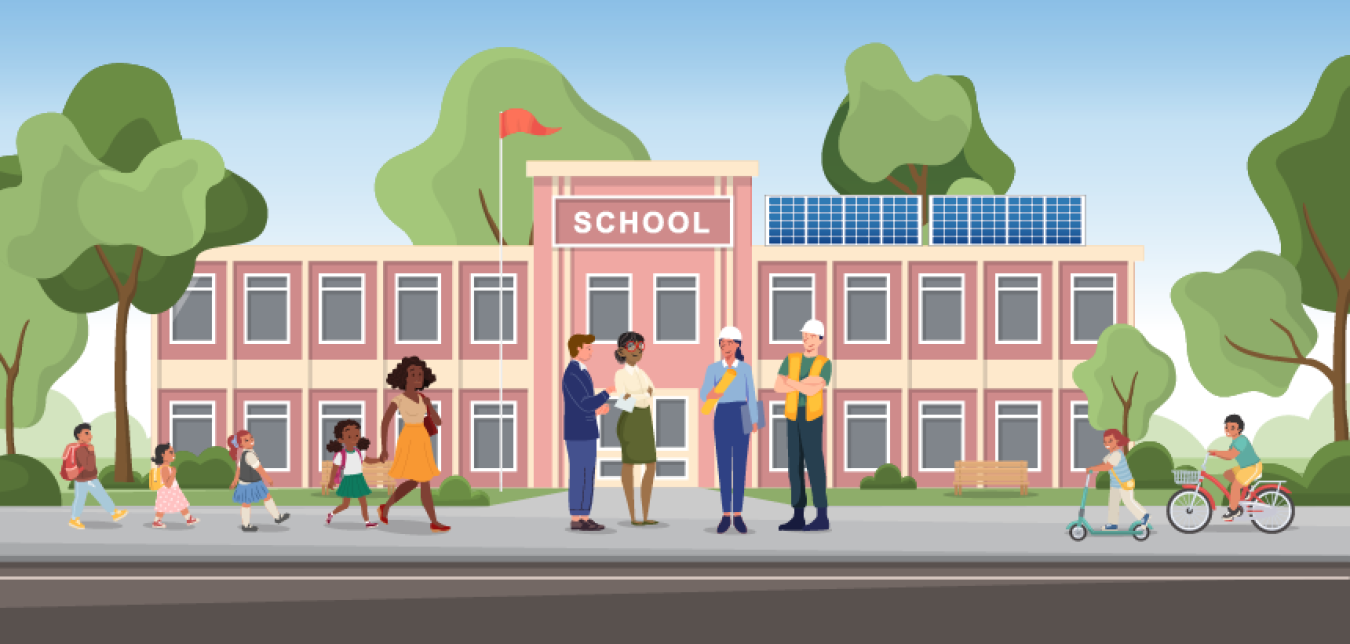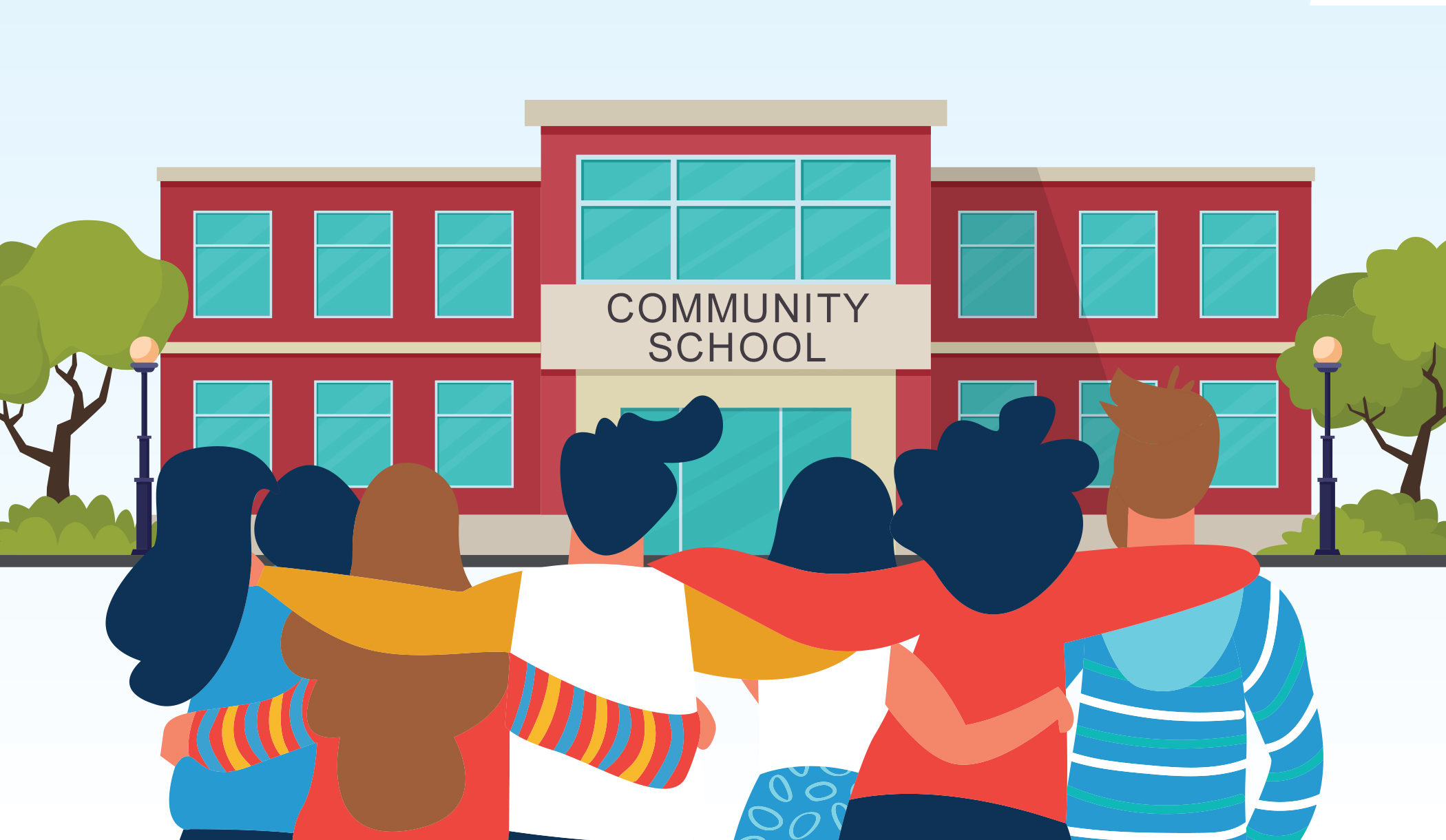Why It's Crucial to Rally Together to Save Temecula Schools
Why It's Crucial to Rally Together to Save Temecula Schools
Blog Article
Recognizing the Value of Schools in Kid Growth and Area Development
Schools act as essential organizations for kid growth and community development, supplying atmospheres where scholastic achievements are enhanced by the growing of social skills and exposure to diverse point of views. These instructional settings not only promote important thinking and effective interaction but likewise foster compassion via collective tasks. Moreover, schools' involvement with local communities through service-learning campaigns strengthens the bond between households and schools. This cooperative relationship underscores the significance of colleges in nurturing active citizenship and long-lasting understanding habits. However, what are the particular systems through which these institutions achieve such extensive effects?
Academic Achievement
Academic achievement serves as a keystone of youngster growth, offering the foundation upon which future discovering and success are developed. Schools play an essential duty in cultivating this academic development, supplying organized environments where youngsters can acquire necessary understanding and cognitive skills. Standard educational program guarantee that students gain effectiveness in core subjects such as maths, science, and language arts, which are critical for both college and expert opportunities.
In enhancement to imparting essential academic abilities, colleges likewise grow important reasoning, analytical capacities, and intellectual interest. These cognitive competencies are vital for browsing complex real-world scenarios and adapting to the ever-evolving demands of the contemporary workplace. Teachers, as facilitators of understanding, utilize diverse instructional strategies to cater to diverse understanding styles, therefore maximizing private trainee possibility.
Furthermore, scholastic success is very closely connected to self-worth and motivation. Kids that experience scholastic achievements are more probable to develop a favorable self-concept and a lifelong enthusiasm for discovering. Institutions likewise use numerous resources, such as libraries and modern technology, which additionally boost the educational experience and prepare students for a highly sophisticated culture.
Social Ability Advancement
Beyond academic accomplishment, the function of institutions in social ability growth is essential. Schools serve as a main place for youngsters to find out and exercise essential social skills such as dispute, communication, and collaboration resolution. In the structured setting of a class, students engage with peers, teachers, and various other college staff, using various chances to develop these important capabilities.
Efficient social skill growth in schools is facilitated via group tasks, collective jobs, and extracurricular programs. These interactions assist pupils recognize social norms, build compassion, and foster a feeling of neighborhood. Team tasks teach pupils exactly how to function together in the direction of a typical objective, pay attention to different perspectives, and navigate differences constructively.

The cultivation of social skills throughout academic year lays a structure for future personal and expert partnerships. Save Temecula Schools. As pupils mature, the capability to properly communicate and collaborate comes to be progressively important, highlighting the college's essential role in all natural child development
Exposure to Variety
Exposure to diversity in institutions is essential to fostering a comprehensive frame of mind and expanding trainees' point of views. Schools act as a microcosm of the wider culture, and running into varied cultures, languages, and socioeconomic backgrounds within this setting equips pupils with vital abilities for browsing an increasingly globalized globe. This exposure encourages empathy, minimizes prejudices, and promotes shared respect among peers.
Varied class additionally enhance cognitive and social advancement. Research study shows that pupils that connect with peers from diverse backgrounds show much better analytical skills and imagination. They find out to value various viewpoints, which improves classroom discussions and fosters an extra dynamic learning experience. This understanding of diversity prepares trainees for future workplaces that worth modern proficiency.

Area Engagement
The benefits of diverse classrooms prolong past the school walls, promoting a strong feeling of area involvement among students. By communicating with peers from different social, socioeconomic, and ethnic backgrounds, trainees get a wider point of view and a recognition for diversity. This exposure motivates them to end up being active residents who are ready to add favorably to their communities.
Schools that emphasize community engagement typically integrate service-learning jobs, which allow students to deal with real-world problems while applying scholastic abilities. These jobs not only enhance students' understanding of their coursework but additionally infuse a feeling of obligation and empathy. Furthermore, partnerships between colleges and neighborhood organizations offer students with opportunities to join area occasions, additionally solidifying their function as positive neighborhood participants.
Furthermore, parental and area participation in institutions strengthens the bond in between universities and the communities they offer. When institutions open their doors to area occasions, workshops, and volunteer possibilities, they produce a joint atmosphere that profits all stakeholders. This common assistance system guarantees that pupils receive all natural advancement, preparing them to end up being well-shaped individuals that value and contribute to their communities. Through these initiatives, institutions play a crucial function in supporting community involvement and promoting social growth.
Lifelong Discovering Habits
Establishing long-lasting understanding behaviors is crucial for a child's constant growth and versatility in an ever-changing world. Institutions play an essential duty in instilling these habits by producing an environment that promotes interest, important reasoning, and a love for understanding. Via extracurricular activities and diverse click here now curricula, educators encourage students to explore different subjects, examine info seriously, and apply their finding out to real-world scenarios.

Furthermore, colleges provide a structured setting where children you can try here can develop self-discipline and time monitoring skills, both of which are vital for constant learning. By highlighting the importance of setting goals, reviewing progress, and adapting methods, schools prepare trainees to browse the intricacies of grown-up life, ensuring they remain lifelong students and factors to culture.
Conclusion
To conclude, institutions are crucial in fostering kid advancement and area development by providing environments conducive to scholastic success, social ability growth, and exposure to diversity. With joint projects and interactions, institutions improve essential reasoning, compassion, and communication skills. Community engagement initiatives further strengthen the bond between instructional establishments and neighborhood areas. Ultimately, schools grow long-lasting understanding practices, outfitting people with the essential understanding and skills to contribute positively to culture.
In the structured environment of a class, trainees interact with peers, instructors, and various other institution personnel, using numerous chances to develop these important abilities.
In essence, direct exposure to diversity within colleges not only enhances specific pupils however additionally strengthens the social material of the go to this website area as a whole.
The benefits of diverse classrooms prolong past the school walls, promoting a strong sense of neighborhood involvement among students.Institutions that stress neighborhood engagement commonly include service-learning projects, which enable trainees to address real-world troubles while using academic skills. Partnerships in between colleges and neighborhood companies give pupils with opportunities to take part in neighborhood occasions, further strengthening their duty as proactive community members.
Report this page